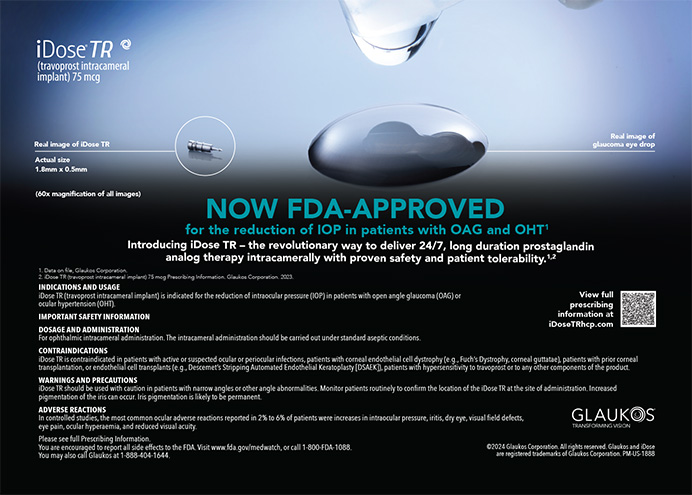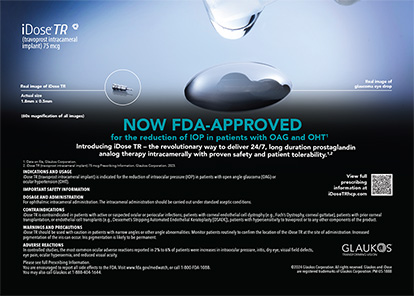Medicine is opaque to most laypeople; ophthalmology appears particularly arcane. Therefore, malpractice disputes between an aggrieved patient and a well-meaning physician are resolved by highly technical litigation. Essential to this procedure are the scientifically and clinically factual explanation and analysis of the events being disputed and their outcome. Enter the expert witness.
TYPES OF EXPERT WITNESSES
In ophthalmic malpractice litigation, we might divide expert witnesses into three categories. The first includes the nonophthalmologist claiming expertise in matters of the eye. These individuals are physicians commonly designated as professional witnesses. The second type includes the ophthalmologist of questionable scruples whose opinions seem to be for sale, as they can readily testify with apparent veracity in favor of either side of a question but elect to support the highest payer. Like the hired guns of the old west, some expert witnesses can be bought. The third group includes the conscientious ophthalmologist who has developed an expertise in a specific area through personal clinical experience, diligent study, and research. Clearly, the last group is the most desirable, and, without their participation, much of the American adversarial legal tort system is undermined.
RESPONSIBILITY
Personally, I do not think that testifying as an expert witness is a professional obligation of all ophthalmologists. Nonetheless, I do believe that our profession will suffer if ophthalmologists of good character with genuine expertise in the subject at hand and the ability to clearly explain the issues to a lay jury choose not to participate in the process of malpractice litigation. Without these ophthalmologists' input, it will be much more difficult for opposing parties to garner verifiable facts that will allow a jury to make a fair decision.
I can see only one way to deal with an established system that can be perverted by unethical experts for hire, and that is for honest, responsible experts to join the fray. If the good guys do not fight, the bad guys win. Another compelling reason for ophthalmologists to be active in medical malpractice litigation is to have our profession monitor itself. If we refuse to participate, we allow less-informed individuals to make decisions regarding the quality of eye care.
WHICH SIDE?
Should a responsible expert testify for other physician colleagues who are defending themselves or for the patients who are convinced they have been wronged? Surely, we must all stick together and protect members of our ophthalmic club. Expert ophthalmologists must testify only on behalf of their fellow practitioners and never squander their expertise in favor of greedy malpractice-generating patients and their despicable attorney.
I am, of course, being sarcastic. An expert witness can render a fair opinion in favor of a fellow ophthalmologist whom he considers innocent of malpractice as well as in favor of a patient whom he thinks has clearly been treated outside the standard of care. The key is to review the case thoroughly and make a fair determination of whether malpractice occurred.
CONCLUSION
Lawsuits alleging medical malpractice are an ominous part of the every physician's life. The American adversarial system of jurisprudence is our society's chosen way of assessing and resolving these lawsuits. The system is best served when an honest, knowledgeable ophthalmologist aids as an expert witness for either the defendant doctor or the plaintiff patient.
George O. Waring III, MD, is in private practice at the Inview Vision Center and is Clinical Professor of Ophthalmology at Emory University in Atlanta. Dr. Waring may be reached at (678) 222-5102; drgeorge@georgewaring.com.
New standards are needed.
By Lee T. Nordan, MD
The system for dealing with medical negligence is and should be under constant scrutiny. This article analyzes the weaknesses inherent in the expert witness aspect of this process and contains some suggestions for its improvement.
NECESSITIES
The first question is whether or not a system for adjudicating medical negligence is necessary. It is, although the system is undoubtedly often abused. For that reason, penalties should be imposed on plaintiffs who bring unsuccessful lawsuits. I do not agree with attorneys who state that the time and effort a lawsuit entails sufficiently penalize a plaintiff for subjecting physicians and their family and staff to the legal process if that plaintiff's allegations are proven to be unfounded. It is not a level playing field for a plaintiff's lawyer to ask for $5 million in damages and not be willing to risk $100,000 if the case is unsuccessful. In my opinion, this penalty alone would drastically limit the number of frivolous lawsuits.
The use of expert witnesses is a necessity in a trial system, because it is probably the only practical and valid method of determining a reasonable standard of care. Someone other than an ophthalmologist certainly would not understand the nuances of making a decision concerning eye surgery and medical eye care. The problems arise not with having expert witnesses but with the quality, prejudices, and self-promotion of a minority of the witnesses for either the plaintiff or the defense. The issue, then, is not whether to employ expert witnesses but rather how to hold them to an adequate standard.
ENSURING WITNESSES' QUALITY
Disclosure
To ensure that expert witnesses are of sufficient quality, I advocate the disclosure to the ophthalmic profession as well as to the general public of an expert's affiliation with a legal case. This roster of expert witnesses for the plaintiff and defense should be published prominently in all of the ophthalmic peer-reviewed and trade publications as well as public documents produced by the court.
Relevance
An expert witness should be actively involved in the specific area of ophthalmology or eye care in dispute. For example, a surgeon who does not perform refractive surgery has no place testifying in a case focused on a LASIK flap. A retinal specialist rather than a general ophthalmologist would be an appropriate expert witness for a lawsuit involving vitreoretinal surgery performed by a retinal specialist.
Reason
All expert witnesses should sign a statement under penalty of perjury that indicates their acceptance of the idea that the standard of care requires reasonable medical judgment, although the medical decision made in the case may not be the most common choice.
Qualification
In my view, after an expert witness is engaged by either the plaintiff or the defense, that person's name may be given to a newly created state or federal Ophthalmic Expert Witness Advisory Board. This board would be composed of one judge, three lawyers, two ophthalmologists, and two laypeople. If a majority of the board did not vote to accept an expert's testimony based upon that person's factual statements in deposition before a trial regarding the standard of care, then that expert witness would be disqualified before the trial or would be subject to litigation for improper testimony afterward. In other words, shady behavior could have consequences.
CONCLUSION
Many states have improved the expert witness system by requiring that such individuals be in the same general field as the defendant and that they be in active practice or only recently retired. Many more improvements are needed, however.
Being named as a defendant in a medical negligence lawsuit can be a harrowing experience. Although a system for dealing with ophthalmic medical negligence is necessary, the legislature of every state and federal jurisdiction has a responsibility to ensure that only potentially valid lawsuits involving competent and impartial expert witnesses are filed. That is not yet the case.
Lee T. Nordan, MD, is a technology consultant for Vision Membrane Technologies, Inc., in San Diego. Dr. Nordan may be reached at (858) 487-9600; laserltn@aol.com.


